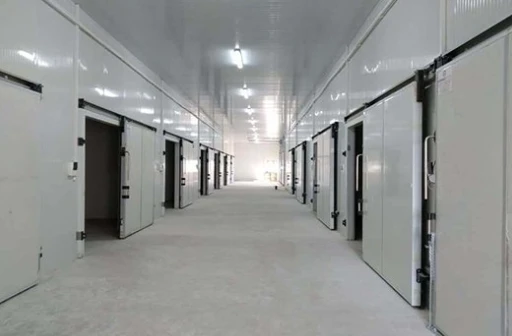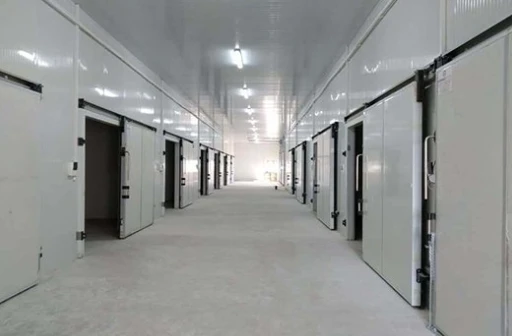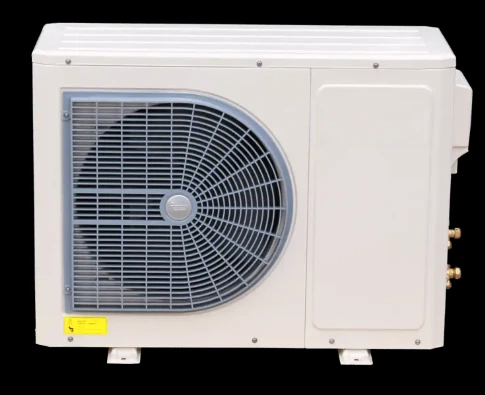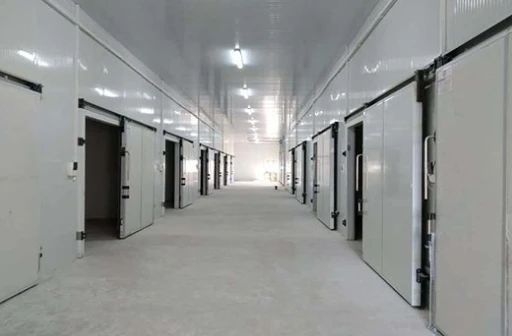Cold Room Panel Manufacturing Standards
From food storage to pharmaceutical preservation, cold room panels form the backbone of modern temperature-controlled environments. This comprehensive guide explores cold room panels for sale options, examines cold room panel construction, compares cooler room panels variations, analyzes cold room panel manufacturers standards, and explains factors affecting cold room panels price - revealing how these insulated structures maintain precise climate control across industries.
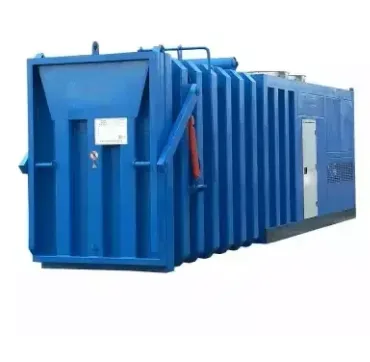
Cold Room Panels for Sale: Choosing the Right Fit
The market offers diverse cold room panels for sale designed for specific temperature requirements and applications. These prefabricated insulation modules range from basic 60mm thickness for climate-controlled storage to 150mm+ industrial-grade panels capable of maintaining -30°C environments. Modern cold room panels for sale typically feature polyurethane (PUR) or polystyrene (EPS) cores sandwiched between stainless steel or food-grade plastic facings. Recent innovations include antimicrobial coatings and fire-retardant options that enhance safety in sensitive storage applications while maintaining thermal efficiency.
Cold Room Panel Construction Explained
A standard cold room panel consists of three critical layers: durable outer facings, high-density insulation core, and interlocking joining systems. The insulation value (R-value) of cold room panel materials determines energy efficiency, with premium polyurethane cores achieving R-7 per inch thickness. Advanced cold room panel designs incorporate tongue-and-groove connections with thermal breaks that prevent cold bridging, ensuring consistent interior temperatures. Some specialized versions feature vapor barriers integrated within the panel structure to control humidity in high-moisture environments like seafood processing facilities.
Cooler Room Panels for Moderate Climate Control
Distinct from deep-freeze applications, cooler room panels are optimized for moderate temperature ranges (+2°C to +15°C) common in beverage storage and floral preservation. These panels typically use slightly thinner insulation (50-80mm) while maintaining robust structural integrity. The cooler room panels market has seen growing demand for sustainable options, including recycled PET foam cores and plant-based polyurethane alternatives. Unlike standard cold room panel configurations, these medium-temperature versions often prioritize rapid installation features like snap-together designs for temporary or seasonal storage needs.
Cold Room Panel Manufacturers: Quality Standards
The most technologically advanced cold room panel manufacturers now incorporate digital twin technology and 3D configuration tools, enabling clients to virtually visualize complete panel assemblies and simulate thermal performance before production begins. These digital solutions allow precise calculation of U-values and thermal bridging effects, ensuring maximum energy efficiency from the initial installation phase. Progressive cold room panel manufacturers have transitioned to automated production lines with robotic precision cutting and assembly, achieving tolerances within ±0.3mm while maintaining consistent foam density throughout panel cores.
Панели ҳуҷраи сард FAQ
What thickness should cold room panels for sale have?
The cold storage panels are consisted by an inner metal plate, an outer metal plate, and an intermediate polyurethane insulation layer. BRD brand polyurethane insulated panel for cold storage can be produced with a thickness of 20mm-300mm. The appearance of the board is of pressed in compression bar or clear surface. The thickness of the color coated steel plate is 0.4 mm-0.8 mm. The effective width of the cold storage board is 1 m. The insulation core material is polyurethane (PU). The fire rating is B1 and B2.
How do cold room panel materials affect energy efficiency?
Environmental factors compound these material differences - polystyrene cold room panel insulation can degrade up to 20% in R-value when exposed to moisture infiltration, while polyurethane's closed-cell structure resists such performance loss. Modern cold room panel manufacturing techniques further enhance efficiency through precision-cut tongue-and-groove joints that minimize thermal bridging - a critical factor often responsible for 5-10% of total heat gain in panel installations.
When should cooler room panels be specified over standard cold room panels?
Cooler room panels are ideal for moderate temperature applications (+2°C to +15°C) where extreme insulation isn't required, offering cost and installation advantages.
What certifications should cold room panel manufacturers provide?
Reputable cold room panel manufacturers maintain rigorous quality control by adhering to international certifications including ISO 9001 for quality management and NSF/3-A standards for food-grade surface compliance. These industry-leading cold room panel manufacturers implement comprehensive testing protocols that evaluate critical performance parameters: thermal conductivity (λ-value) to ensure optimal insulation properties, fire safety ratings for building code compliance, structural load capacity for durability under stress, and long-term insulation performance through accelerated aging tests.
Why does cold room panels price vary so significantly between projects?
Дар cold room panels price fluctuates based on insulation requirements, facing materials, custom fabrication needs, and transportation logistics to the installation site.
From basic cold room panels for sale to customized solutions from leading cold room panel manufacturers, these insulated building systems continue evolving to meet diverse climate control needs. The distinction between standard cold room panel configurations and specialized cooler room panels demonstrates how material science adapts to different temperature requirements. While cold room panels price remains an important consideration, the long-term value of properly specified thermal barriers proves indispensable for food safety, pharmaceutical storage, and industrial process cooling applications worldwide.













































































































